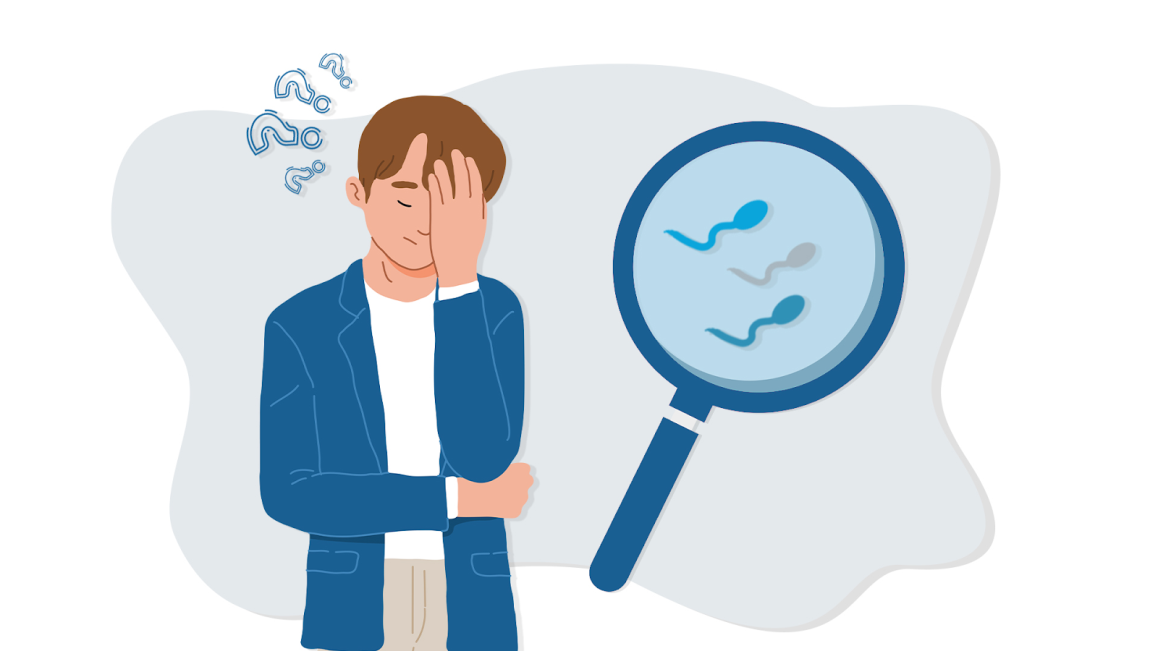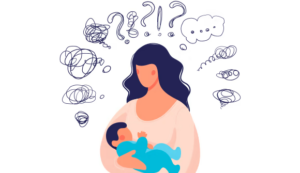The Untold Story of Male Infertility
When conversations around infertility happen, the emotional weight women carry often takes center stage. But there’s another story unfolding quietly, one many men live through without ever speaking it aloud. Infertility cuts deep into men’s hearts, too, shaking their sense of identity, relationships, and emotional safety. Men’s mental health matters and is often shunned due to society’s set identities of them, they are human too.
Imagine carrying grief so heavy you can’t name it. Shame so deep it burrows into your bones. Rage and helplessness stitched into every medical result, every clinic visit and feeling like you have to face it all without a map. After four decades of supervising therapists, here’s one truth that keeps surfacing: men hurt, too and their healing deserves to be seen.
This isn’t about telling men to “open up” more. It’s about naming the real emotional wounds and offering ways to walk through them with dignity.
How Infertility Stress Can Show Up for Men
You may not recognize the stress at first, but it finds ways to surface. Here are some common signs:
- Feeling emotionally numb, detached, or robotic
- Bursts of anger at seemingly minor frustrations
- Shame during medical exams or fertility evaluations
- Avoiding conversations about children, families, or the future
- Deep feelings of failure as a partner
- Pulling away emotionally from loved ones
- Struggles with sleep, concentration, or libido
- Questioning masculinity and self-worth
If you see yourself here, you are not broken, you are human, responding to invisible and painful loss. Online therapy is also available which can come handy if you are hesitant to discuss this in person.
Why Infertility Hits Men Differently
- Identity and Worth Tied to Fertility
For many men, whether they realize it or not, masculinity feels bound to the ability to father a child. When infertility interrupts that path, deep feelings of inadequacy, shame, and failure can erupt. Internal whispers might sound like:
- “I’m not a real man.”
- “I’m letting my partner down.”
- “I should be able to fix this.”
When masculinity feels shattered, grief can feel endless, but you are more than your biology. Men’s mental health is tied to the idea of masculinity making it harder to understand the generic mental health care that applies to every human being.
- Cultural Expectations to “Stay Strong”
Men are often taught to show strength by suppressing emotion. Tears, vulnerability, and fear are seen as weakness. Yet nothing could be further from the truth.Real strength is feeling grief, facing fear, and still choosing to move forward with heart.
- Medical Dehumanization
Infertility treatment can feel humiliating. Semen analysis, fertility discussions reduced to numbers, being talked about rather than with it all adds up. Every dehumanizing moment leaves an emotional bruise that deserves acknowledgment and care.
- Disenfranchised Grief
When family and friends only focus on the woman’s pain, men’s grief becomes invisible. This unrecognized grief can harden into loneliness, resentment, and emotional shutdown. Your grief matters, even when the world refuses to see it.
- Complex Couple Dynamics
Many men suppress their emotions to be the “strong one” for their partner. But buried emotions don’t disappear, they build walls, strain intimacy, and isolate both partners. Both partners deserve space to mourn, rage, and hope, together and apart. Online therapy also helps facilitate this process as bringing this piece of matter for discussion in person can invite some discomfort and apprehension initially. Virtual sessions can be used to regulate the sessions.
How Men Can Protect Their Emotional Health During Infertility
- Build a Private Emotional Sanctuary
You don’t have to share your feelings with the world. But you do need a space where they are allowed to exist. One idea: Keep a “Grief Ledger.” Jot down sentences like:
- “Today, I felt invisible.”
- “Today, I hated my body.”
- “Today, I wanted to scream.”
Writing without judgment can be a lifeline when the world feels too heavy.
- Redefine What Strength Means
Strength isn’t about enduring in silence. It’s about honoring your pain without letting it destroy your spirit. Strong men grieve. Strong men ask for help. Strong men heal.
- Choose One “Brother in Arms”
Find just one person, a trusted friend, a mentor, or a therapist who can handle your raw truth without trying to fix it. You don’t have to carry the weight alone to prove your worth.
- Create Personal Rituals to Honor Loss
Plant a tree. Light a candle. Write a letter to a future that feels out of reach. Mark your grief in a way that feels real to you. Your invisible losses deserve to be witnessed, even if by your own hands.
- Reclaim Agency
You may not control infertility, but you can control how you move through it. Advocate for respectful care. Set clear emotional boundaries. Choose where and when to share your story. Small acts of self-respect can rebuild a sense of dignity and power. Therefore, Men’s mental health must be given importance and infertility is not a flaw, it is your biological design, this is not attached to your personal strength or weakness. Online therapy can also be used to discuss this matter in depth from your space of comfort, without forcing anything.
FAQ: Men’s Mental Health and Infertility
Is it normal for men to feel ashamed about infertility?
Yes. Many men internalize infertility as a personal failure. Naming the shame is the first act of healing.
Why do I feel angry all the time?
Anger often shields deeper grief. It’s how many men survive overwhelming loss.
How can I cope with feeling powerless?
Focus on what you can influence: your emotional healing, your self-advocacy, and who you trust to walk alongside you.
Should I seek therapy even if talking about feelings is hard?
Absolutely. A good trauma therapist in India will meet you where you are, not force you into uncomfortable molds.
What makes therapy at Coach For Mind different for men?
Coach For Mind honors the silent places men carry. Here, silence, rage, numbness, and grief are welcomed, not judged.
How do I manage feeling like I’ve failed my partner?
Infertility is a medical condition, not a measure of your love or strength. You are enough as you are.
How can I mark the losses I’m experiencing if no one else sees them?
Create your own rituals, private or shared that honor the unseen grief you carry.
What if I feel emotionally numb?
Numbness is protection when emotions feel too big. It means your heart is still trying to protect you.
Can infertility impact my relationship long-term?
Yes, if emotions are buried. Honest, imperfect conversations are vital to staying connected.
How do I handle insensitive comments about “trying harder” or “being a man”?
Prepare simple boundary statements like, “We’re working through this in our own way,” and protect your emotional space.
Why do I feel like nobody understands what I’m going through?
Because male infertility grief is still invisible. But silent doesn’t mean you are alone.
How do I balance supporting my partner with supporting myself?
You can’t truly support your partner if you neglect your own pain. Both paths matter.
Can infertility affect my sense of sexual confidence?
Yes. Healing means untangling sexual identity from biological outcomes and rebuilding trust with your own body.
How do I deal with hope and disappointment cycles?
Allow yourself to grieve each loss fully. Hope and grief can coexist without canceling each other out.
What is the first emotional step I can take today?
Name your feelings. Even if just to yourself. Naming brings your truth out of the shadows.You are allowed to grieve. You are allowed to rage. You are allowed to hope. You are allowed to heal, slowly, fully, on your own terms.
Why Coach For Mind?
- We are an organization focused on therapy that is informed by trauma and rooted in compassion. Our psychologists, who are licensed and RCI-registered, excel in approaches like EMDR, IFS, CBT, DBT, Psychodynamics, and others. However, techniques are never the final goal.
- We emphasize creating a safe, judgment-free space where you can heal on your own terms.
- We recognize that every journey is individual. This is why we avoid one-size-fits-all solutions. We listen, we tailor our approach, and we accompany you, regardless of your challenge, whether it’s anxiety, past traumas, or feelings of being stuck.
- Quality Service is the top most priority at Coach For Mind.
- Coach For Mind places your emotional safety at the forefront. Our kind, structured, and professional trauma-informed approach guarantees that you will consistently feel supported but never pressured. You don’t need to get everything right. You don’t need to be okay. Just be yourself and we will figure it out together.
For more information, please visit our website or contact us directly at coachformind@gmail.com









